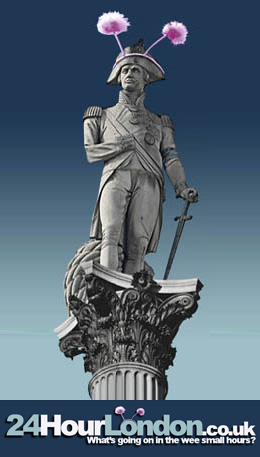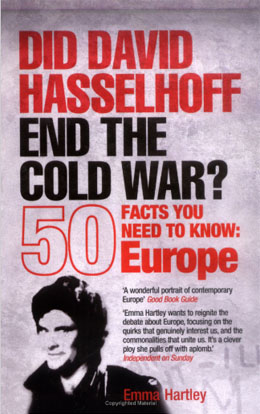"Lilly white hands", "pretty fair maids", "milk white steeds"... Please join in when you think you know the chorus. "It was on a [fill in blank] morning, as [fill in blank] was dawning." There are certain phrases in folk that make my toes curl, although the love that I bear the genre as a whole means that I can be sophisticated and mature, and do the psychological equivalent of sticking my fingers in my ears, going "la, la, la" when they come up. I loathe clichés: can't help it. They make me want to say something sarcastic.*
I know, I know. The whole point is that it's traditional music and how will we recognise it without its tropes? And yet it gets recognised. When Bellowhead, Jim Moray, Jackie Oates, The Imagined Village or Show of Hands do something innovative it's identifiable as folk. But just without the dull bits. And I know I'm not alone in feeling this way because Frank Skinner got booed when he started on about beards, sandals and fingers in ears at the folk awards this year.
The trouble with cliché - whether in music or anything else - is that it's just a bad way of expressing oneself. By using phrases that have been used over and over again you reduce the world to a series of stereotypes and make people think that they know what you're going to say before you actually say it. This means that thereafter they don't listen properly and that any time and energy you've devoted to expressing yourself better later on will have been wasted.
Cliché is the opposite of creativity. It closes off neural pathways, reinforces prejudices and blinds us to the innovative. It dulls the senses and makes the potentially fascinating appear prosaic.
True, there is a big old tension there when you consider it in relation to folk music. Very few situations under the sun are new, and writing and performing songs about the truths that ring down the generations is what folk is often about.
But every generation experiences these situations as if for the first time - because, for them, it is the first time - and not to acknowledge this through reinterpretation would be emotionally dishonest. So it's exactly the universality of a song like, say, Hard Times of Old England - but equally songs that speak of having to leave your home for economic reasons, going to war, or failing to marry and settle down when society tells you you should - that demand each generation claim them for their own. The world looks subtly different to each of us and explaining the textures and sensibilities involved in that is the wellspring of humanity.
I like folk because more than any other genre it reminds me of people and places I've loved. But I enjoy it a lot more when I see evidence of other people's original thought processes, creativity and passion embedded there. I like a bucolic mythologising of Albion as much as the next dappy, longhaired girl. But the largest amount of joy is in the telling.
Btw, surely it must be about time someone did an epoch-defining Hard Times of Old England for the 21st century? Something really angry...
* In case it's not obvious, I've been dwelling on last week's post about Dumnonia by Jim Causley and wondering what it was about that album and the old-fashioned nature of it that bothered me. Although, I'm not saying that the album is full of clichés exactly - more that it's possible that Causley hasn't found the right material yet or isn't interpreting the material he's got in a way that suits him - the above is what I came up with.




Don't know about Hard Times Of Old England, but the Duncan McFarlane Band do a great modern version of A-Begging I Will Go involving dogs on string, drugs and the bins round the back of McDonalds.
ReplyDeleteAs for cliches, well - it depends how they're used. If they are trotted out through laziness they ain't welcome, but if they come thundering out of the songwriting stable for dramatic effect. A good cliche can be useful shorthand but should be used sparingly. And I've certainly heard enough songs about visiting Maidenhead on a May morning...
Point taken. I guess you could say something similar about swearing, when used for dramatic effect...
ReplyDeletehttp://www.youtube.com/watch?v=jPP308kGDiY
ReplyDeletei write folk music about drink drugs falling over and raving monkeys so there
www.reverbnation.com/botyov1791
Google floating verses. Your "cliches" are actually a fundamental part of folk song, reflecting how songs were constructed and disseminated for centuries. That in itself makes the familiar images more like a comforting friend than a tired cliche. They are a connection to the evolution of the songs, and the people who sang them and thought certain images to be the "right" way of expressing a particular thing. I remember my daughter when she was little saying, "Cheek and chin. Why do they always get kissed cheek and chin?" Because they do, that's why. Because it's folk. And that's a good enough reason.
ReplyDelete